
Bijilo Forest Park: A Tranquil Oasis in The Gambia
Bijilo Forest Park, also known as Monkey Park, is a lush, green sanctuary situated on the coast of The Gambia. This natural park offers a serene escape from the bustling city life, making it a perfect destination for those seeking peace and tranquility. As you stroll through the park's well-maintained trails, you'll be surrounded by towering trees, vibrant flora, and the delightful sounds of nature. One of the park's main attractions is its population of friendly green vervet and red colobus monkeys. These charming creatures are known for their playful antics and curious nature, providing endless entertainment for visitors. Birdwatchers will also find Bijilo Forest Park a haven, as it is home to a variety of bird species, including the striking hornbills and colorful sunbirds. The park's proximity to the beach allows for a unique blend of forest and coastal experiences. After exploring the forest's winding paths, you can unwind on the sandy shores or take a refreshing dip in the ocean. Whether you're an avid nature lover, a bird enthusiast, or simply looking for a peaceful retreat, Bijilo Forest Park offers a diverse and enriching experience for all.
Local tips in Bijilo Forest Park
- Bring binoculars for birdwatching; the park is a haven for bird enthusiasts.
- Wear comfortable walking shoes as some trails can be uneven and sandy.
- Carry a bottle of water to stay hydrated, especially during the hotter months.
- Avoid feeding the monkeys; while they are friendly, it's best to observe them in their natural habitat.
- Visit early in the morning or late afternoon for the best chances to see wildlife.
Bijilo Forest Park: A Tranquil Oasis in The Gambia
Bijilo Forest Park, also known as Monkey Park, is a lush, green sanctuary situated on the coast of The Gambia. This natural park offers a serene escape from the bustling city life, making it a perfect destination for those seeking peace and tranquility. As you stroll through the park's well-maintained trails, you'll be surrounded by towering trees, vibrant flora, and the delightful sounds of nature. One of the park's main attractions is its population of friendly green vervet and red colobus monkeys. These charming creatures are known for their playful antics and curious nature, providing endless entertainment for visitors. Birdwatchers will also find Bijilo Forest Park a haven, as it is home to a variety of bird species, including the striking hornbills and colorful sunbirds. The park's proximity to the beach allows for a unique blend of forest and coastal experiences. After exploring the forest's winding paths, you can unwind on the sandy shores or take a refreshing dip in the ocean. Whether you're an avid nature lover, a bird enthusiast, or simply looking for a peaceful retreat, Bijilo Forest Park offers a diverse and enriching experience for all.
When is the best time to go to Bijilo Forest Park?
Iconic landmarks you can’t miss
Bijilo National Park
Explore the lush landscapes and vibrant wildlife of Bijilo National Park, a serene retreat near Serrekunda, Gambia for nature lovers and adventure seekers.
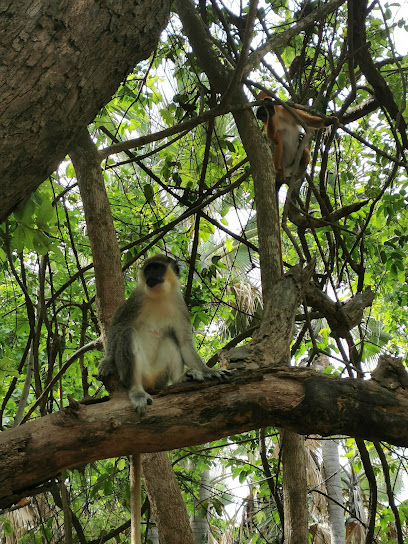
Bijilo Monkey Park
Experience the vibrant wildlife and serene beauty of Bijilo Monkey Park, a must-visit destination for nature lovers in The Gambia.
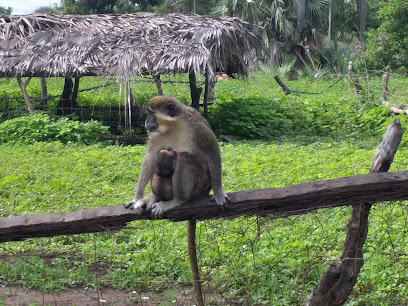
Bijilo Beach
Discover the tranquil beauty of Bijilo Beach, a serene coastal paradise near Serrekunda, perfect for relaxation and breathtaking sunsets in The Gambia.

Unmissable attractions to see
Kunta Kinteh Island
Explore Kunta Kinteh Island, a UNESCO World Heritage Site rich in history and natural beauty, perfect for reflection and adventure in The Gambia.
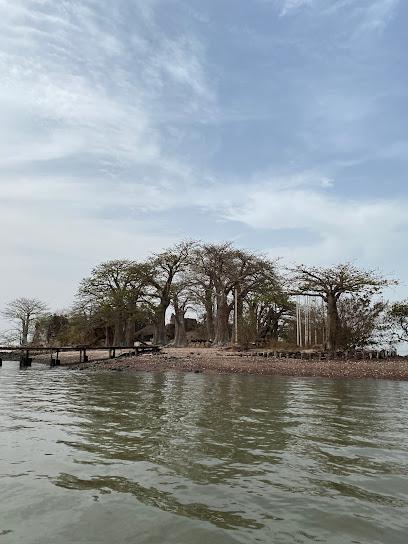
Bakau craft market
Discover the heart of Gambian culture at Bakau Craft Market, where authentic crafts, local cuisine, and vibrant community converge.
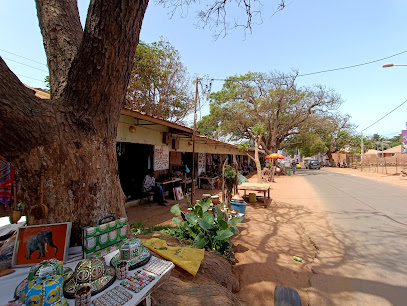
QCITY LEISURE COMPLEX
Experience endless fun and excitement at QCITY Leisure Complex, Bijilo's top amusement park for families and thrill-seekers alike.
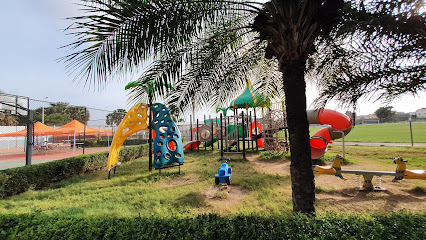
Tanji Fishing Center 🎣 bass
Discover the heart of Gambian fishing culture at Tanji Fishing Center, where fresh seafood and local traditions thrive in a vibrant market atmosphere.

Tanje Village Museum
Explore the vibrant cultural heritage of The Gambia at Tanje Village Museum, where history, tradition, and community come alive.
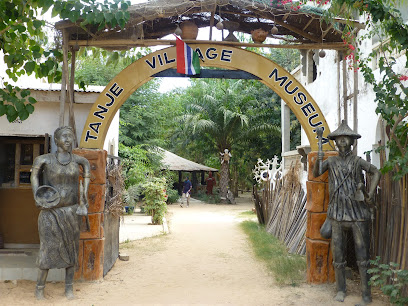
Banjul Central Mosque
Explore the serene beauty and cultural significance of Banjul Central Mosque, a vibrant spiritual hub in The Gambia's capital.
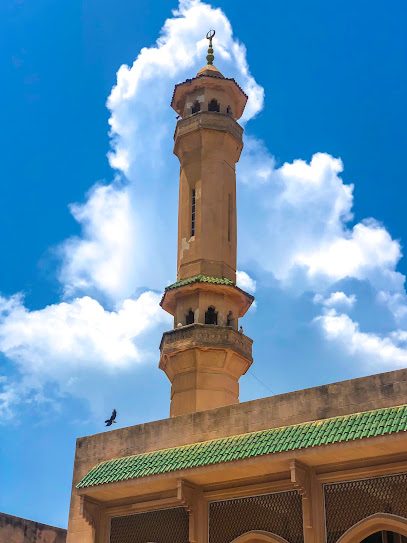
Fort Bullen
Explore Fort Bullen, an iconic historical landmark in Barra, Gambia, blending rich history with stunning coastal scenery.
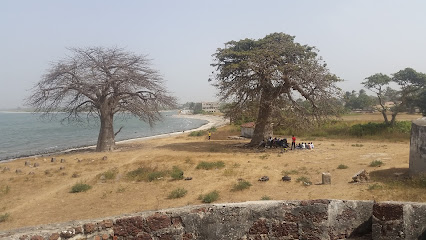
Salagi Forest Park
Discover the stunning biodiversity and serene beauty of Salagi Forest Park, a national park in Mariama Kunda, perfect for nature lovers and adventure seekers.
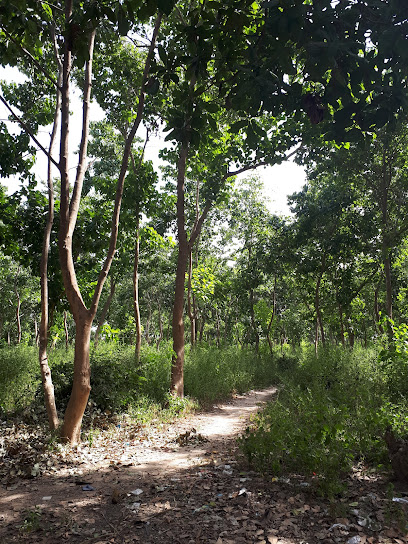
National Botanical Gardens
Discover the lush beauty of the National Botanical Gardens in Bakau, a tranquil escape filled with diverse plant species and serene landscapes.
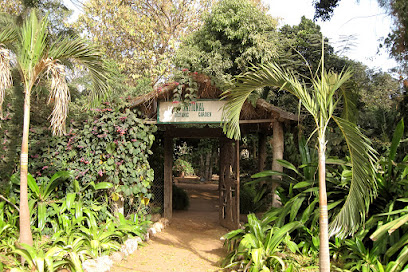
Ghana Town Fisher men Place
Discover the vibrant culture and traditional fishing practices at Ghana Town Fishermen Place in Brufut, a must-visit tourist attraction in The Gambia.
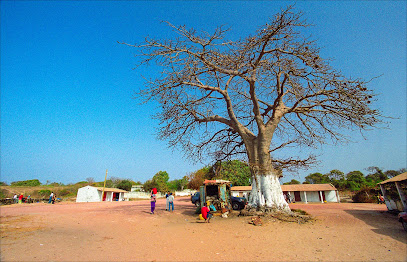
Nino & Kodeh Watersport & Entertainment
Experience the thrill of water sports and ATV adventures at Nino & Kodeh Watersport & Entertainment, the ultimate destination for fun in Serrekunda.
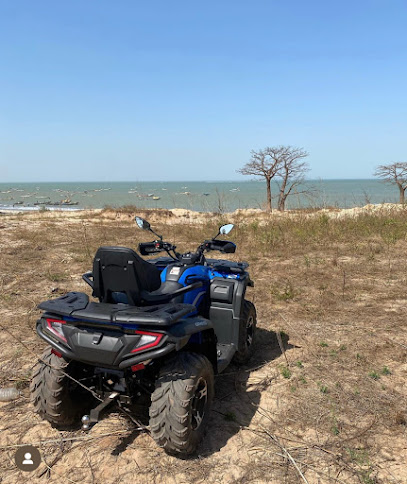
Nature trail
Discover the serene Nature Trail in Serrekunda, a perfect escape into lush landscapes and vibrant ecosystems.
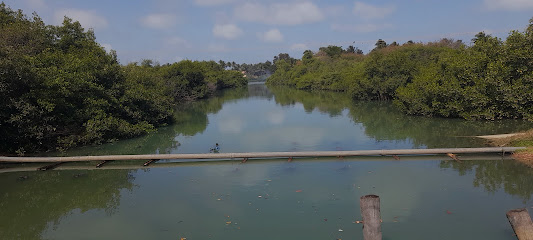
Tanbi Wetland National Park
Discover the tranquil beauty and rich biodiversity of Tanbi Wetland National Park, a serene escape perfect for eco-tourism and birdwatching enthusiasts.
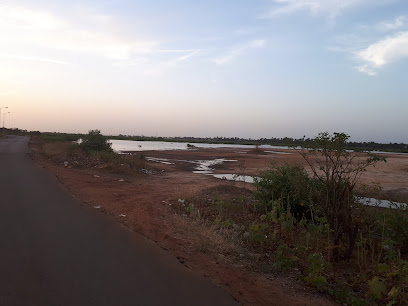
Gambie
Discover Gambie, a captivating tourist attraction in Banjul where culture, adventure, and breathtaking landscapes come together for an unforgettable experience.

Ngala Rocky Beach
Experience the breathtaking beauty of Ngala Rocky Beach, a hiking paradise along the stunning Atlantic coast of Bakau, Gambia.

Essential places to dine
Bijilo National Park
Discover the beauty and biodiversity of Bijilo National Park in Gambia - a must-visit for nature lovers and adventure seekers.
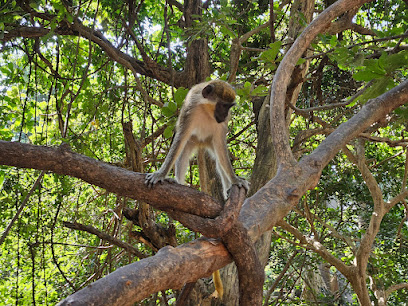
Poco Loco Beachbar Gambia
Experience the vibrant atmosphere of Poco Loco Beachbar in Gambia—where delicious food meets stunning ocean views.
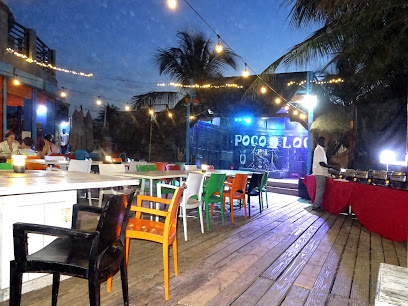
Gusto Italian Resto &bar
Experience authentic Italian cuisine at Gusto Italian Resto & Bar in Senegambia - where flavors meet ambiance.
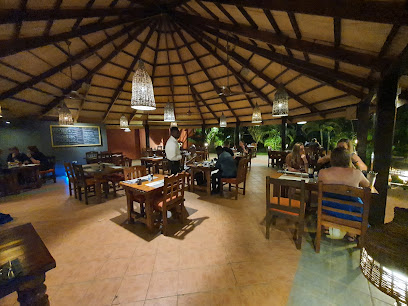
Sea Shells Bar & Restaurant
Discover the flavors of The Gambia at Sea Shells Bar & Restaurant—where local cuisine meets vibrant atmosphere along Senegambia Highway.
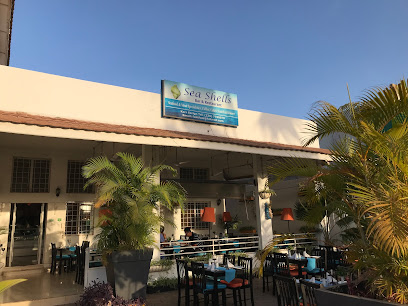
The Clay Oven
Experience authentic Gambian cuisine at The Clay Oven in Serrekunda – where tradition meets taste!
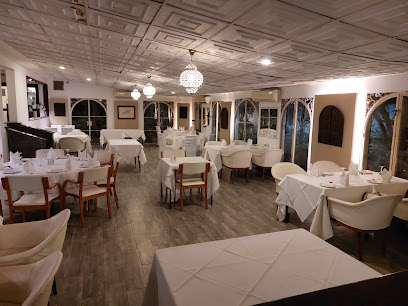
Roots Beach Bar & Restaurant
Discover coastal bliss at Roots Beach Bar & Restaurant in Bijilo - where stunning views meet delectable cuisine.
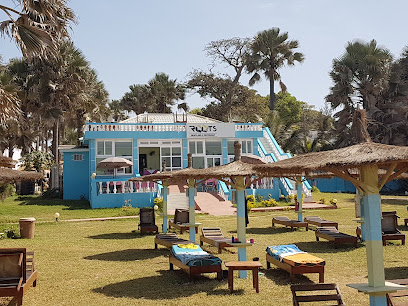
The new wild monkey
Savor the vibrant flavors of Gambia at The New Wild Monkey – where delicious cuisine meets lively atmosphere.
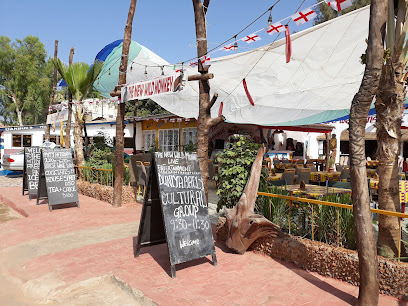
Kasumai BBQ and Steak House
Experience exquisite barbecue at Kasumai BBQ and Steak House on Bijilo Beach - where every bite is a taste of paradise!
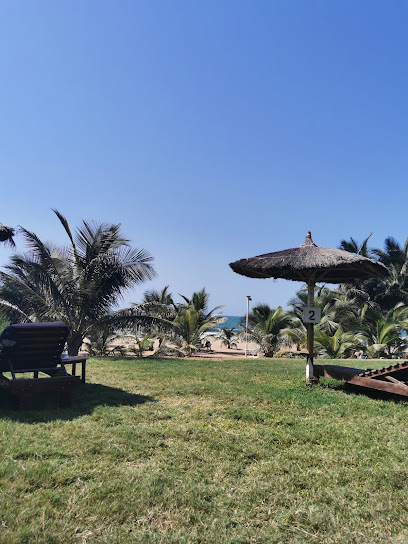
Heritage Restaurant
Experience authentic Gambian cuisine at Heritage Restaurant in Serrekunda—where local flavors meet warm hospitality.
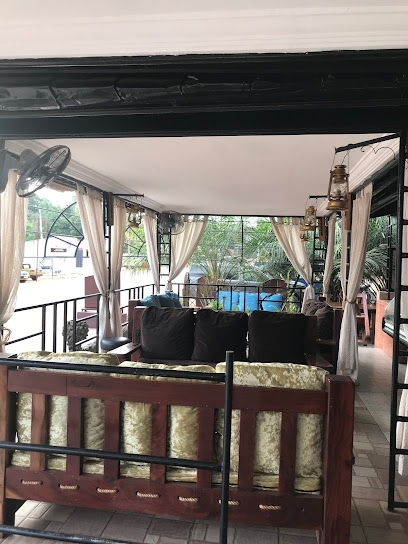
SUNBIRD Beach
Experience the beauty of SUNBIRD Beach in Bijilo – where culinary delights meet stunning ocean views.
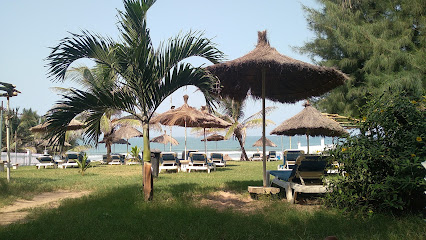
Jamaica Jamaica restaurant and night club
Discover the heart of Jamaican culture at Jamaica Jamaica Restaurant & Night Club - a culinary journey filled with vibrant flavors and unforgettable nightlife.
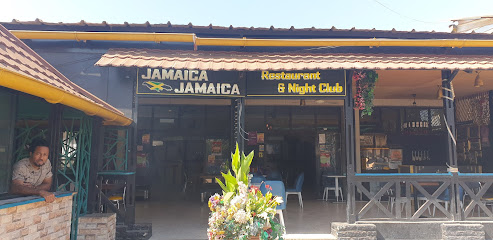
Baobab restaurant
Discover the heart of Gambian cuisine at Baobab Restaurant in Bijilo - where tradition meets flavor in every dish.

Guesthouse Three Wild Monkeys
Discover relaxation and vibrant local culture at Guesthouse Three Wild Monkeys in Kololi - your perfect Gambian getaway.
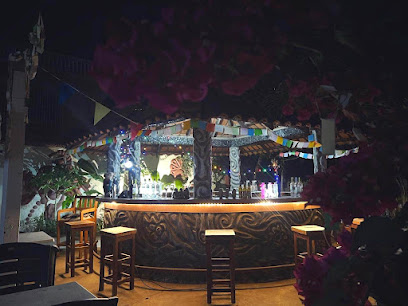
Peace of Mind Restaurant
Discover authentic Gambian seafood at Peace of Mind Restaurant in Kartong – where every dish celebrates freshness and local culture.
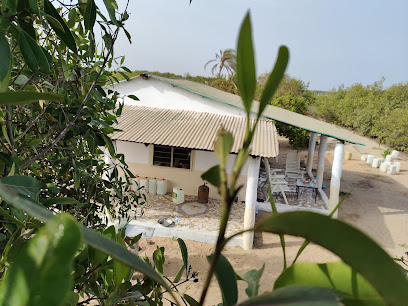
The Fig Treefood And Drinks
Discover authentic Gambian cuisine at The Fig Tree Food and Drinks in Bijilo—where flavor meets tradition.
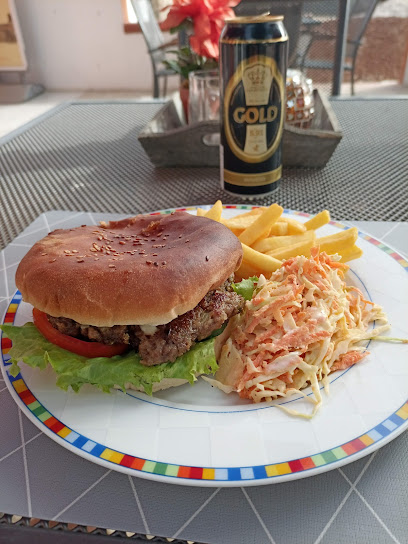
Markets, malls and hidden boutiques
Terangas
Explore the vibrant flavors of Gambia at Terangas grocery store in Bijilo, offering local products and convenient grocery delivery services.
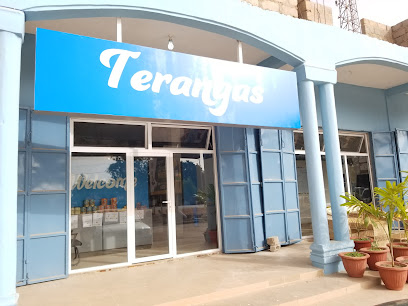
TOP-SHOP
Explore the vibrant culture of The Gambia at TOP-SHOP, your go-to destination for unique souvenirs, handicrafts, and local art.
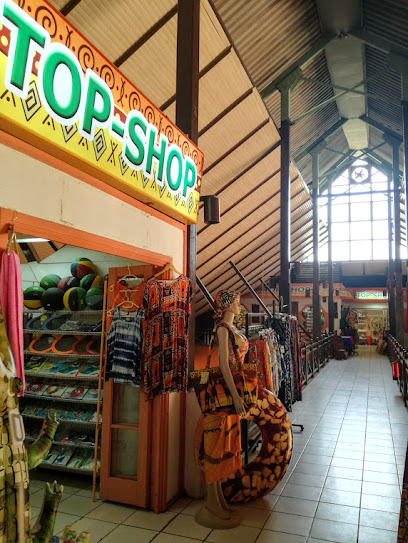
JJJ Supermarket
Experience the local flavors and vibrant culture at JJJ Supermarket in Serrekunda, your go-to grocery destination in The Gambia.

Talya's Supermarket
Experience local culture at Talya's Supermarket in Bijilo, where shopping meets community spirit and Gambian flavors await.
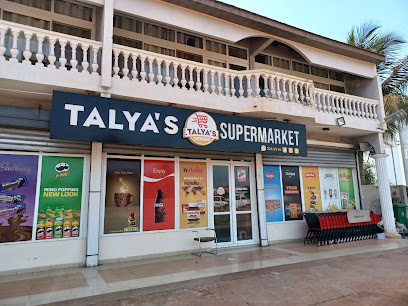
Olympic Gambia
Explore Olympic Gambia: Your go-to destination for unique home goods and exquisite local crafts along the Senegambia Highway.

WILLOWS
Discover unique home goods that blend Gambian culture and modern design at Willows, a must-visit store in Serrekunda.

colley shop
Discover unique second-hand treasures at Colley Shop, a charming thrift store in Brusubi, perfect for sustainable and budget-friendly shopping.
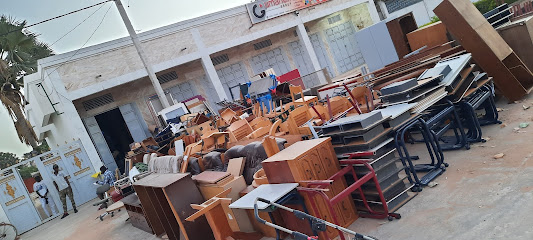
Ibi's Gallery.gm
Experience the vibrant culture of The Gambia at Ibi's Gallery, a variety store offering unique crafts, souvenirs, and local products in Serrekunda.

The Neighborhood Store
Explore local treasures at The Neighborhood Store in Sanchaba Sulay Jobe, where authentic Gambian crafts meet everyday essentials.

LERDY ShOP
Discover unique Gambian products and souvenirs at LERDY ShOP in Brusubi, a vibrant shopping destination for every traveler.

Irie Shop
Explore the heart of Gambian culture at Irie Shop, a gift shop in Serrekunda offering unique local crafts and souvenirs.
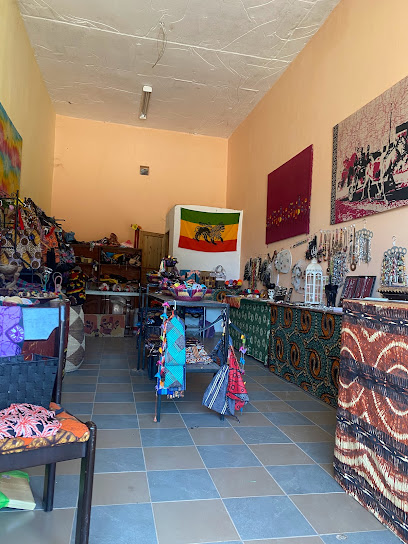
Dijas Tailoring
Discover unique, handcrafted garments at Dijas Tailoring in Bijilo, where tradition meets modern style in a vibrant Gambian atmosphere.

Baobab Craft Souvenir Shop
Explore the rich artistry of The Gambia with unique handcrafted souvenirs at Baobab Craft Souvenir Shop in Bijilo.

Elite shop
Explore Bijilo's Elite Shop for exquisite fashion accessories that showcase quality craftsmanship and elevate your style.

Bitik-Bi
Explore Bitik-Bi, a charming convenience store in Serrekunda, offering local snacks and essentials along the beautiful Kombo coastal highway.

Essential bars & hidden hideouts
Reo's Bar and Restaurant
Experience the vibrant culture and delightful flavors at Reo's Bar and Restaurant in Serrekunda, where every visit is a celebration.
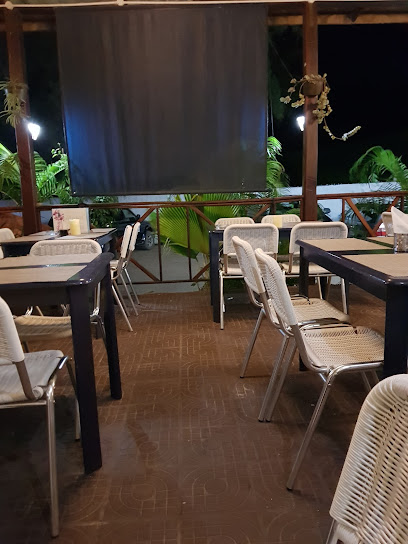
GT's Bar & Restaurant
Experience authentic Gambian flavors and vibrant nightlife at GT's Bar & Restaurant in Serrekunda, the heart of Senegambia.
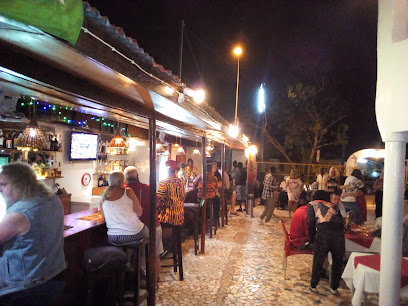
Roots Beach Bar & Restaurant
Discover the tranquil charm of Roots Beach Bar & Restaurant in Bijilo, where delicious cuisine meets stunning ocean views.
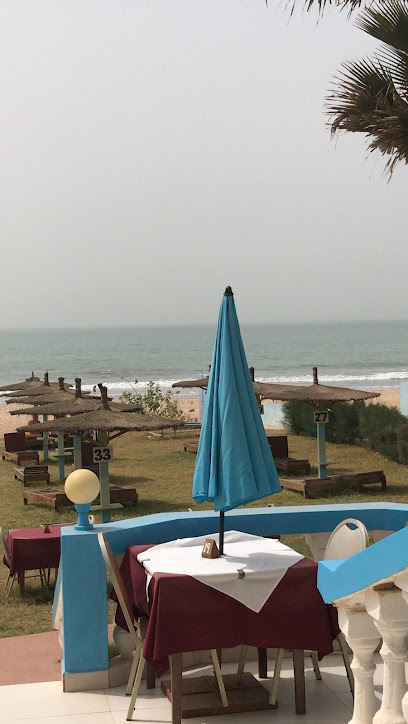
Time-Inn
Experience the vibrant nightlife at Time-Inn in Serrekunda, a lively bar offering local drinks, music, and a friendly atmosphere.
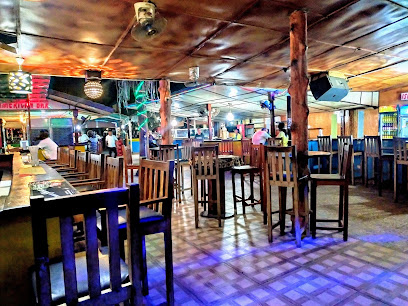
Cassy's Lounge
Experience the vibrant nightlife at Cassy's Lounge in Serrekunda, where friendly vibes and refreshing drinks await every visitor.
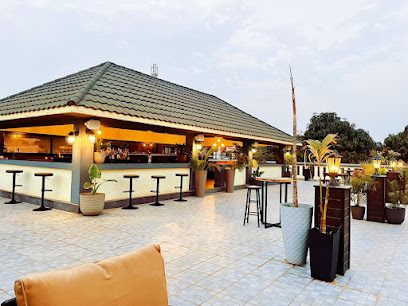
Blagger's Bar and Restaurant
Experience the fusion of local flavors and vibrant nightlife at Blagger's Bar and Restaurant in Serrekunda, The Gambia.
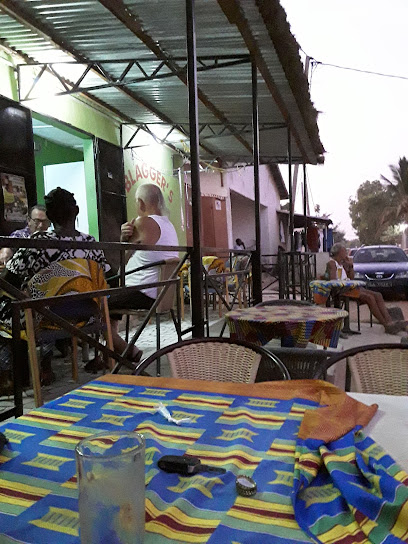
Zing Bar, Bijilo
Experience the vibrant flavors of Gambian cuisine at Zing Bar, a beachfront grill bar in Bijilo offering delicious food and stunning ocean views.

Sarjo fruitshop
Discover the vibrant flavors of Gambia at Sarjo Fruitshop, a tropical oasis offering fresh fruits and delightful beverages in Bijilo.
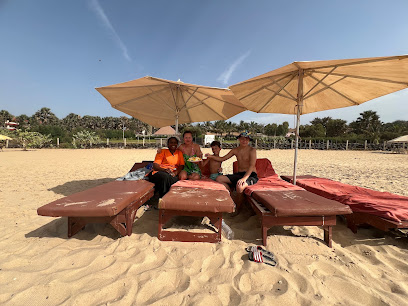
Spendaz Bar Lounge & 24hr Restaurant
Experience the vibrant taste of Serrekunda at Spendaz Bar Lounge & 24hr Restaurant, where culinary delights meet a lively atmosphere, open 24 hours a day.
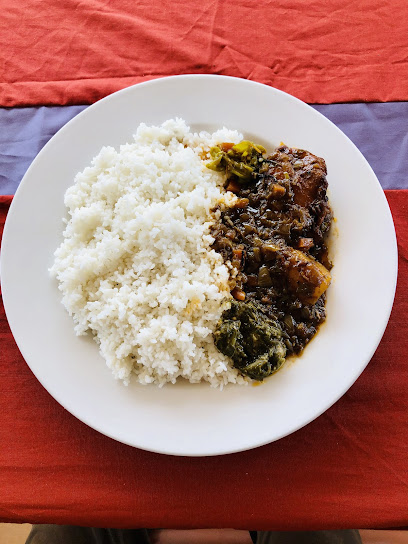
Fugagis
Discover the lively atmosphere and refreshing drinks at Fugagis, a premier bar in Serrekunda ideal for tourists and locals alike.

Cloud Shisha
Experience the vibrant atmosphere of Cloud Shisha, a premier sports bar in Serrekunda, perfect for sports enthusiasts and shisha lovers alike.
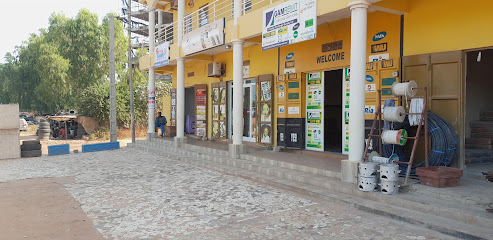
Mary G’s Bar & Restaurant
Immerse yourself in the lively atmosphere of Mary G’s Bar & Restaurant, where local flavors and vibrant nightlife blend seamlessly.
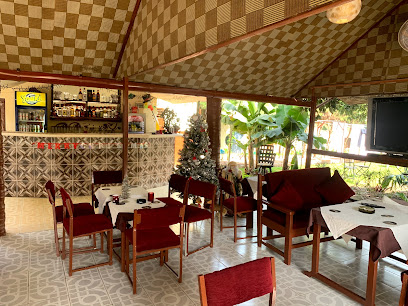
Lamin's Juice Bar
Discover the refreshing taste of The Gambia at Lamin's Juice Bar in Serrekunda, where delightful smoothies and local vibes await tourists.

Green door
Discover the vibrant atmosphere of Green Door, the perfect bar to unwind and enjoy local flavors in the heart of Brusubi.

Local Phrases about Bijilo Forest Park
-
- HelloSalam
[sa-lam] - GoodbyeTaw nyang
[taw nyang] - YesEyo
[eyo] - NoAla
[a-la] - Please/You're welcomeNanga def
[nan-ga def] - Thank youJerejef
[je-re-jef] - Excuse me/SorryNopp
[nop] - How are you?Nanga def?
[nan-ga def] - Fine. And you?Deli. Nanga def?
[deli. nan-ga def] - Do you speak English?Waxtaanuka Angalee?
[wax-ta-nu-ka an-ga-lee] - I don't understandMaa laa neex
[ma-la neex]
- HelloSalam
-
- I'd like to see the menu, pleaseNopp ma laa yombu meniyu
[nop ma-la yom-bu men-yu] - I don't eat meatMaa laa jerejef kuy yapp
[ma-la je-re-jef kuy yapp] - Cheers!Bissimillah!
[bis-si-mil-lah] - I would like to pay, pleaseNopp ma laa def, jerejef
[nop ma-la def, je-re-jef]
- I'd like to see the menu, pleaseNopp ma laa yombu meniyu
-
- Help!Ndanka!
[n-dan-ka] - Go away!Defal!
[de-fal] - Call the Police!Walaas Police!
[wa-laas po-lice] - Call a doctor!Walaas dokteer!
[wa-laas dok-teer] - I'm lostMa neex
[ma neex] - I'm illMa laa leeral
[ma laa lee-ral]
- Help!Ndanka!
-
- I'd like to buy...Nopp ma laa joxe...
[nop ma-la jo-khe] - I'm just lookingMaa laa fofa
[ma-la fo-fa] - How much is it?Nopp lu muy dem?
[nop lu muy dem] - That's too expensiveLu muy soppa
[lu muy sop-pa] - Can you lower the price?Baax na daan?
[baax na dan]
- I'd like to buy...Nopp ma laa joxe...
-
- What time is it?Noppu ngay dem?
[nop-pu ngay dem] - It's one o'clockNgay dem waakar
[ngay dem wa-ka] - Half past (10)Noppu ngay juroom (10)
[nop-pu ngay ju-room (10)] - MorningBere
[be-re] - AfternoonDewen
[de-wen] - EveningDuba
[du-ba] - YesterdayGoor
[gor] - TodayHawle
[haw-le] - TomorrowNelaw
[ne-law] - 1Benn
[ben] - 2Juj
[juj] - 3Talata
[ta-la-ta] - 4Njenaar
[nje-naar] - 5Jom
[jom] - 6Juk
[juk] - 7Jete
[je-te] - 8Jorom
[jo-rom] - 9Joox
[joox] - 10Fukk
[fukk]
- What time is it?Noppu ngay dem?
-
- Where's a/the...?Noppu... yow la?
[nop-pu yow la] - What's the address?Noppu man ak?
[nop-pu man ak] - Can you show me (on the map)?Baax na am xamne (sama map)?
[baax na am xam-ne (sa-ma map)] - When's the next (bus)?Noppu benn?
[nop-pu ben] - A ticket (to ....)Bisiket (yi ....)
[bi-si-ket (yi)]
- Where's a/the...?Noppu... yow la?
History of Bijilo Forest Park
-
Bijilo Forest Park, also known as Monkey Park, was established in 1952 as a nature reserve. It was created to protect the diverse flora and fauna of the region and to preserve a portion of the rapidly disappearing coastal forest ecosystem in The Gambia. The park spans approximately 126 hectares and has become a significant spot for both conservation and tourism.
-
The park is home to an array of plant and animal species, many of which are endemic to the West African region. The forest is primarily composed of dense tropical hardwoods, including silk cotton trees and baobabs. Bijilo Forest Park is particularly famous for its primate population, including the endangered Western Red Colobus monkeys and Green Vervet monkeys. Conservation efforts within the park have focused on protecting these species from poaching and habitat destruction.
-
Bijilo Forest Park holds cultural importance for the indigenous communities in the region. The forest and its biodiversity are often featured in local folklore and traditional practices. The park also serves as a site for educational programs that aim to raise awareness about the importance of environmental conservation among the local population and tourists.
-
Over the decades, Bijilo Forest Park has developed into a popular tourist destination, attracting visitors from around the world. Guided tours and well-maintained trails allow tourists to explore the park's natural beauty while learning about its ecological and cultural significance. The park's proximity to the coastal resorts of The Gambia has further boosted its popularity, making it a key attraction in the country's tourism industry.
-
In recent years, Bijilo Forest Park has become a hub for environmental education. Various programs and workshops are conducted within the park to educate both locals and visitors about the importance of biodiversity conservation. These initiatives are often supported by international conservation organizations and aim to foster a sense of stewardship towards the environment among the younger generation.
-
In response to increasing environmental threats, recent conservation efforts have focused on reforestation projects and stricter anti-poaching measures. Collaborative efforts between the Gambian government, local communities, and international NGOs have been instrumental in these initiatives. The park continues to serve as a critical sanctuary for wildlife and a natural heritage site for future generations.
Bijilo Forest Park Essentials
-
Bijilo Forest Park is located along the Atlantic coast in The Gambia, near the town of Bijilo. The nearest international airport is Banjul International Airport (BJL), which is approximately 20 kilometers away. From the airport, you can take a taxi directly to the park. The journey typically takes around 30 minutes. Alternatively, you can arrange for a hotel transfer service if you are staying in nearby areas.
-
Transportation options to Bijilo Forest Park include taxis, which are readily available and relatively inexpensive. Shared taxis (locally known as 'sept-places') are also an option for budget travelers. For those who prefer public transportation, minibuses and buses operate along the main roads and can drop you off near the park. Renting a car is another convenient option, especially if you plan to explore other parts of The Gambia.
-
The official currency in The Gambia is the Gambian Dalasi (GMD). Credit cards are accepted at some hotels, restaurants, and larger shops, but it is advisable to carry cash, especially when visiting local markets or rural areas. ATMs are available in nearby towns, but it's wise to withdraw enough cash in advance. Currency exchange services are also available at the airport and in major towns.
-
Bijilo Forest Park is generally a safe destination for tourists. However, it is advisable to take standard precautions. Avoid walking alone at night in unfamiliar areas and keep an eye on your belongings in crowded places. The nearby town of Serrekunda has higher crime rates targeting tourists; thus, it is best to stay vigilant. Always use reputable taxi services and avoid displaying valuable items openly.
-
In case of emergency, dial 117 for police assistance or 16 for medical emergencies. The nearest hospital is in Serrekunda, which offers medical services. It is recommended to have travel insurance that covers medical emergencies. For minor health issues, pharmacies in nearby towns can provide over-the-counter medications. Keep emergency contact numbers handy and familiarize yourself with the location of the nearest medical facilities.
-
Fashion: Do dress modestly, particularly when visiting local communities or religious sites. Avoid wearing revealing clothing. Religion: Do respect local customs and traditions. Always ask for permission before taking photos of people. Public Transport: Do be polite and patient when using public transport. Don't occupy seats reserved for elderly or disabled passengers. Greetings: Do greet people with a smile and a handshake. Using the local greeting 'Salaam aleikum' is appreciated. Eating & Drinking: Do try local dishes and accept food graciously when offered. Don't eat with your left hand, as it is considered impolite.
-
To experience Bijilo Forest Park like a local, consider visiting early in the morning when the wildlife is most active. Engage with local guides who can offer insights into the flora and fauna. Don't miss the chance to see the Western Red Colobus monkeys, which are a highlight of the park. Bring a picnic and enjoy a meal in the designated picnic areas. Respect the park rules, such as staying on marked trails and not feeding the animals.
Nearby Cities to Bijilo Forest Park
-
Things To Do in Serrekunda
-
Things To Do in Bakau
-
Things To Do in Lamin
-
Things To Do in Banjul
-
Things To Do in Brikama
-
Things To Do in Gunjur
-
Things To Do in Kaolack
-
Things To Do in Mbour
-
Things To Do in Farafenni
-
Things To Do in Soma
-
Things To Do in Thiès
-
Things To Do in Dakar
-
Things To Do in Canchungo
-
Things To Do in Janjanbureh
-
Things To Do in Bissau








